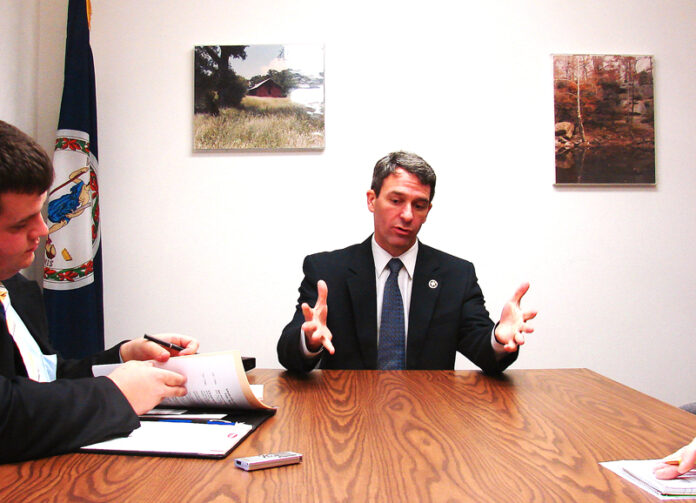
On Friday it is expected that nine U.S. Supreme Court Justices will decide whether to expedite Virginia’s case against the Affordable Healthcare Act – though the decision could be delayed until Monday.
Attorney General Ken Cuccinelli will then know whether he is headed directly to the U.S. Supreme Court or taking the more traditional path via the 4th Circuit Court of Appeals.
Cuccinelli has narrowed Virginia’s lawsuit to the mandate that requires all Virginians to purchase health insurance or be penalized. Concurrently he is proceeding with the case in the 4th Circuit Court of Appeals.
Cuccinelli speculated on his facebook page that “if we don’t hear by Monday then someone is writing a dissent to the decision whether to expedite. If the decision is to expedite the case, then the case in the appellate court will cease immediately.”
On February 7, Governor Bob McDonnell wrote to Kathleen Sebelius, Secretary on Health and Human Services, arguing that the Affordable Healthcare Act “infringes on personal choice and would undermine the insurance industry.”
He characterized the Obama Administration’s opposition to fast track the lawsuit as being “irresponsible and indefensible. A litigation process potentially taking years to resolve is bad for America, and will potentially cost the states tens of millions of dollars.”
If fast track fails then Cuccinelli expects the 4th Circuit Court of Appeals to hear the case sometime in July, and if he loses he will then appeal to the U.S. Supreme Court. If the federal government loses he believes they will probably try to slow it down with another review that could push it to June 2012. Oral argument is presently scheduled for May 10th before a three-judge panel of the 4th Circuit Court of Appeals.
Cuccinelli, at his office in Roanoke on March 18 claimed the Department of Justice knowingly makes a number of misstatements in their briefs defining the meaning of the Commerce Clause. “To win they really need the world to be as they wish it to be and not as it is,” he said. The Commerce Clause is interpreted to mean “economic activity” or “physical activity” across state lines.
“If our mental activity – our decision not to do something is regulatable by congress … that’s incredible. But there are judges out there ready to grab from that incredible power,” he said.
If the federal government fails in their “commerce clause” argument, the fall back for them is that the health care mandate is a tax not a penalty. If it’s a tax under that power then it saves the provision. “I don’t believe a single judge or justice in America will rule that penalty a tax,” said Cuccinelli. “It’s truly radical – if that is all they have to do then congress could do anything,” he said.
To implement the PPACA will be costly and time consuming. The Democrats left out a severability clause, which means if the mandate is struck down then the entire bill dies. “That’s why it is so important to me that congress be thinking ahead saying, OK what can we implement if this goes down. I don’t think they should wait,” he said.

